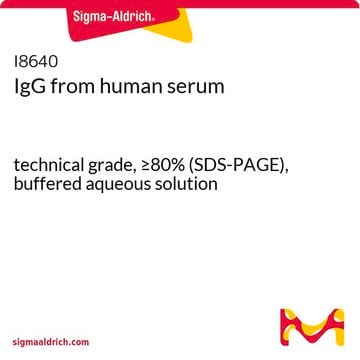I9271
5-(Iodoacetamido)fluorescein
≥90% purity (HPLC), powder
Synonym(s):
5-IAF
About This Item
Recommended Products
product name
5-(Iodoacetamido)fluorescein, ≥90% (HPLC)
Assay
≥90% (HPLC)
form
powder
color
yellow to orange
solubility
DMSO: 5 mg/mL
fluorescence
λex 492 nm; λem 515 nm (Mercaptoethanol adduct)
λex 493 nm; λem 522 nm (pH 9.2)
application(s)
diagnostic assay manufacturing
hematology
histology
storage temp.
−20°C
SMILES string
Oc1ccc2c(Oc3cc(O)ccc3C24OC(=O)c5cc(NC(=O)CI)ccc45)c1
InChI
1S/C22H14INO6/c23-10-20(27)24-11-1-4-15-14(7-11)21(28)30-22(15)16-5-2-12(25)8-18(16)29-19-9-13(26)3-6-17(19)22/h1-9,25-26H,10H2,(H,24,27)
InChI key
UATCLPJEZJKNHE-UHFFFAOYSA-N
Looking for similar products? Visit Product Comparison Guide
General description
Application
Storage Class Code
11 - Combustible Solids
WGK
WGK 3
Flash Point(F)
Not applicable
Flash Point(C)
Not applicable
Personal Protective Equipment
Certificates of Analysis (COA)
Search for Certificates of Analysis (COA) by entering the products Lot/Batch Number. Lot and Batch Numbers can be found on a product’s label following the words ‘Lot’ or ‘Batch’.
Already Own This Product?
Find documentation for the products that you have recently purchased in the Document Library.
Customers Also Viewed
Our team of scientists has experience in all areas of research including Life Science, Material Science, Chemical Synthesis, Chromatography, Analytical and many others.
Contact Technical Service










